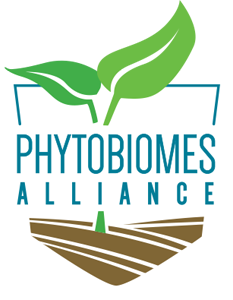
Davide Bulgarelli

Role in Phytobiomes Alliance
Coordinating Committee, EU Innovation Project CIRCLES
Affiliation
University of Dundee
Position
Principal Investigator
Working package leader CIRCLES
Project leader Barley microbiota genetic control
Research Interests
- Molecular Plant-Microbe Interactions
- Microbiome Domestication
- Agricultural Biologicals
Current Phytobiomes-related Projects
- CIRCLES: unlocking the potential of microbiomes for sustainable food production (EU H2020; 2018-23)
CIRCLES is a €10 million European Union funded project which runs from 01 November 2018 to 30 October 2023. In total, 30 organisations from across the whole of Europe have joined the effort to find solutions for the future food challenges by investigating the potential of microbes in the food system. The researchers of CIRCLES are investigating whether and how natural microbiomes in the spinach, tomato, poultry, swine, farmed and wild salmon and seabream food chains can be exploited for a more sustainable, safe, productive and nutritious food production. The aim is to have concrete microbiome products, procedures, tools and applications by the end of the project which can be further developed for use in the (European) job market and economy. - Unravelling the barley genetic control of therhizosphere microbiota (UKRI; 2018-22)
This proposal aims at resolving the causal genetic variants that underpin differential bacterial recruitment in the plant rhizosphere. We will pursue three interconnected objectives. First, we will use 16S rRNA gene profiles as ‘quantitative traits’ to perform a fine mapping of a candidate locus on the barley genome shaping the rhizosphere microbiota. Next, the exudation profiles and root morphology of selected genotypes will be characterised, since these traits have been shown to affect the assembly of the rhizosphere microbiota. In parallel, genes differentially regulated between lines harbouring contrasting alleles at the locus of interest will be identified using a RNA-seq approach. Finally, we will establish how specific bacterial configurations of the barley microbiota driven by the locus of interest impact on crop yield.
06/2022 Update: The project was completed in May 2022 and a manuscript describing the investigations was published in Nature Communications:
Escudero-Martinez, C., Coulter, M., Alegria Terrazas, R. et al. Identifying plant genes shaping microbiota composition in the barley rhizosphere. Nat Commun 13, 3443 (2022). https://doi.org/10.1038/s41467-022-31022-y
